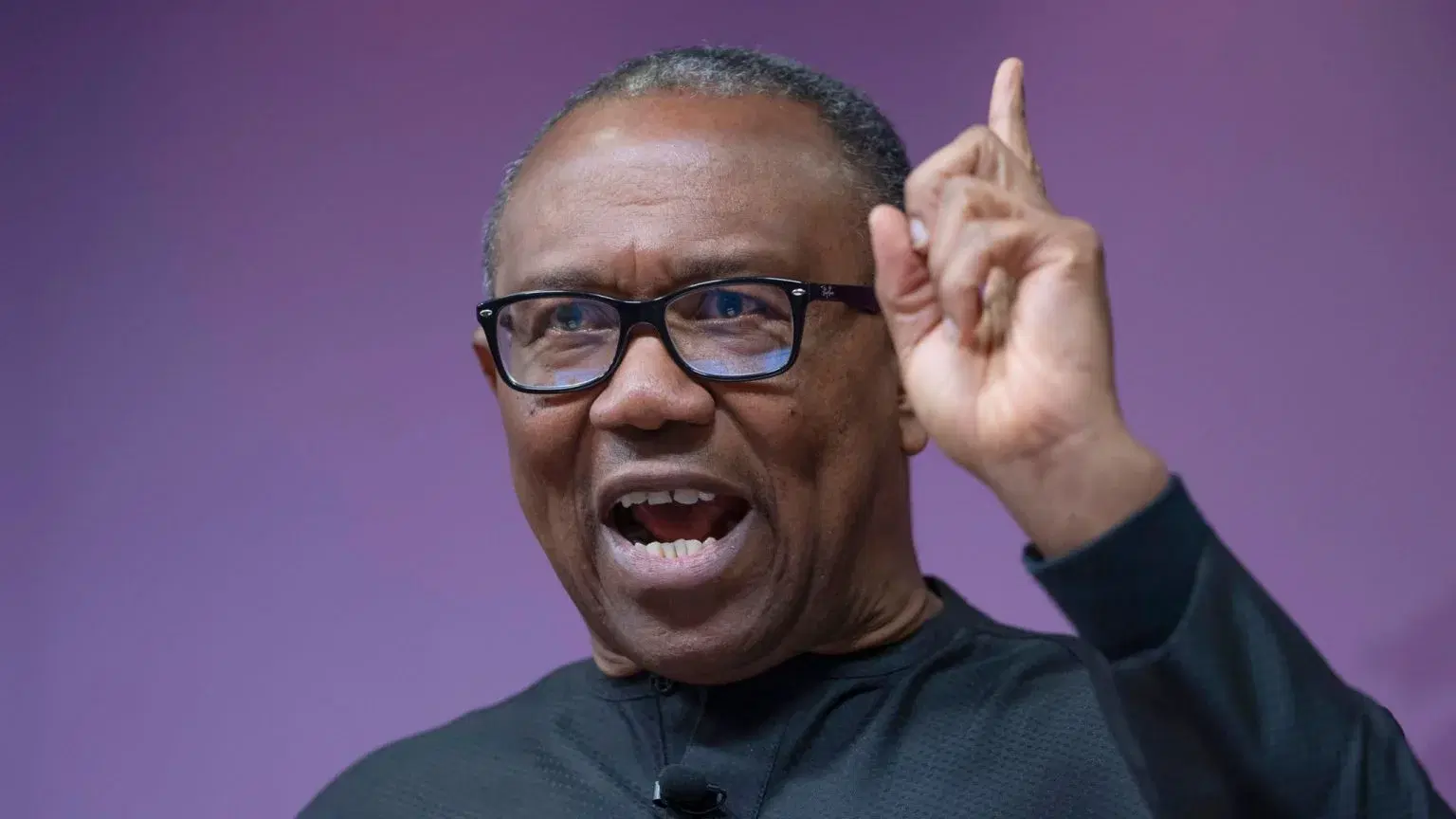"Leaders who Forge Certificates Can't Function Effectively in Nigeria - Peter Obi"
"Leaders who Forge Certificates Can't Function Effectively in Nigeria - Peter Obi"
In the landscape of Nigerian politics and governance, the issue of fraudulent certificates and qualifications has remained a contentious and persistent problem. This issue has garnered the attention of many prominent figures, including former Governor of Anambra State, Peter Obi, who has strongly voiced his concerns regarding the implications of leaders with fabricated credentials on the country's development.
Peter Obi, a seasoned politician with a reputation for good governance and transparency, recently made a bold statement asserting that leaders who resort to forging certificates are unlikely to steer Nigeria in the right direction. His remarks have ignited debates across the nation and sparked discussions on the need for integrity and honesty in leadership.
Obi, who has consistently advocated for ethical leadership in Nigeria, emphasized the importance of integrity and credibility when selecting leaders. He pointed out that those who choose to falsify their educational and professional qualifications undermine the principles of transparency and accountability that should be the cornerstone of any thriving democracy.
Nigeria, a country blessed with vast resources and a talented population, has faced numerous challenges throughout its history. Corruption, nepotism, and inadequate governance have often hindered the nation's progress. The issue of fake certificates and qualifications further exacerbates these challenges by eroding trust in leadership and causing divisions among citizens.
The recent comments by Peter Obi resonate with many Nigerians who have long been frustrated by the lack of accountability in their political system. The forging of certificates is not a new phenomenon in Nigerian politics, and it has been used by some individuals to gain access to positions of power and influence. This deceptive practice not only robs deserving and qualified candidates of opportunities but also perpetuates a culture of dishonesty and impunity.
The consequences of having leaders with fake certificates are far-reaching. It undermines the quality of decision-making, impedes progress, and erodes the trust that citizens place in their leaders. When leaders lack the necessary qualifications and integrity, it becomes challenging to address the pressing issues that affect the lives of ordinary Nigerians, such as healthcare, education, infrastructure, and security.
Peter Obi's strong stance on this issue aligns with the broader call for transparency and accountability in Nigerian governance. It is a reminder that for Nigeria to truly thrive, it needs leaders who can make informed decisions based on competence and merit rather than deceit. The culture of forgery and dishonesty must be eradicated to pave the way for a brighter future for the nation.
The role of the electorate is also crucial in this equation. It is the responsibility of the citizens to scrutinize the backgrounds and qualifications of their potential leaders. They must demand transparency and reject candidates with questionable credentials. By doing so, they can help create a political environment where honesty and meritocracy prevail.
While Peter Obi's statement highlights the urgency of addressing the issue of fake certificates in leadership, it is important to note that this problem is not limited to a single region or political party. It transcends regional, ethnic, and party lines, making it a pervasive challenge that requires collective action.
In conclusion, the issue of leaders forging certificates is a pressing concern for Nigeria's political landscape. Peter Obi's unequivocal assertion that leaders with fabricated qualifications cannot lead the nation effectively has reignited the conversation about the importance of honesty and integrity in leadership. To steer Nigeria in the right direction, it is imperative that the country's leaders are chosen based on merit and credibility, rather than deceit and dishonesty. It is a call to action for Nigerians to demand transparency and accountability in their leadership selection process and to work together to build a more prosperous and equitable future for their nation.




Post a Comment